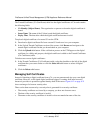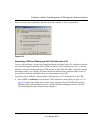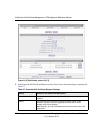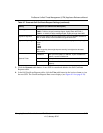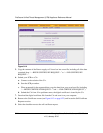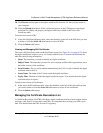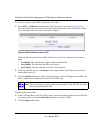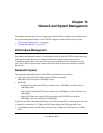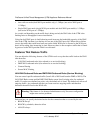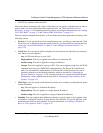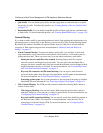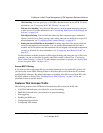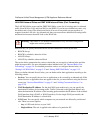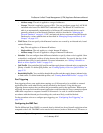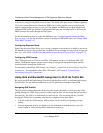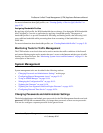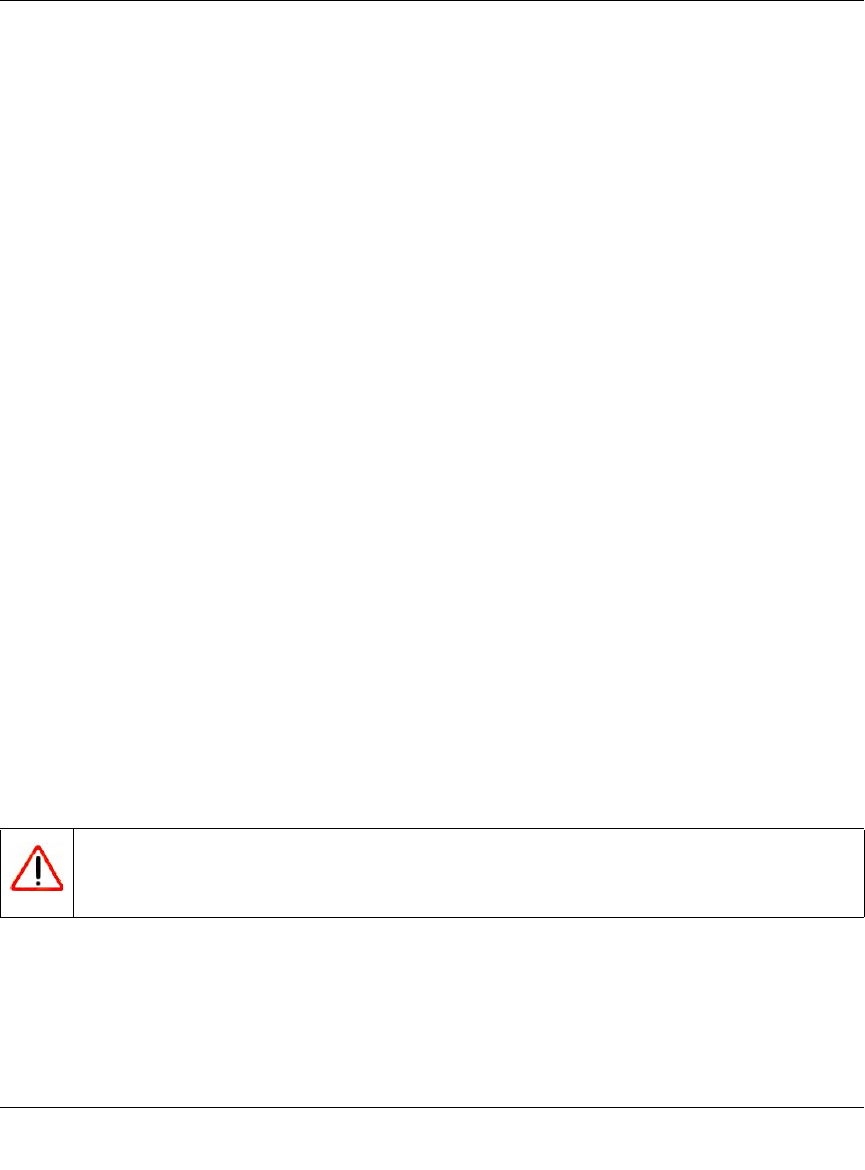
ProSecure Unified Threat Management (UTM) Appliance Reference Manual
10-2 Network and System Management
v1.0, January 2010
• Auto-rollover mode (dual-WAN port models only): 1.5 Mbps (one active WAN port at
1.5 Mbps)
• Single-WAN port mode (single-WAN port models and dual-WAN port models): 1.5 Mbps
(one active WAN port at 1.5 Mbps)
As a result, and depending on the traffic that is being carried, the WAN side of the UTM is the
limiting factor to throughput for most installations.
Using the dual WAN ports in load balancing mode increases the bandwidth capacity of the WAN
side of the UTM, but there is no backup in case one of the WAN ports fail. When such as failure
occurs, the traffic that would have been sent on the failed WAN port is diverted to the WAN port
that is still working, thus increasing its load. However, there is one exception: traffic that is bound
by protocol to the WAN port that failed is not diverted.
Features That Reduce Traffic
You can adjust the following features of the UTM in such a way that the traffic load on the WAN
side decreases:
• LAN WAN outbound rules (also referred to as service blocking)
• DMZ WAN outbound rules (also referred to as service blocking)
• Content filtering
• Source MAC filtering
LAN WAN Outbound Rules and DMZ WAN Outbound Rules (Service Blocking)
You can control specific outbound traffic (from LAN to WAN and from the DMZ to WAN). The
LAN WAN Rules screen and the DMZ WAN Rules screen list all existing rules for outbound
traffic. If you have not defined any rules, only the default rule is listed. The default rule allows all
outgoing traffic. Any outbound rule that you create restricts outgoing traffic and therefore
decreases the traffic load on the WAN side.
Each rule lets you specify the desired action for the connections that re covered by the rule:
•BLOCK always
• BLOCK by schedule, otherwise allow
• ALLOW always
Warning: This feature is for advanced administrators only! Incorrect configuration
might cause serious problems.



